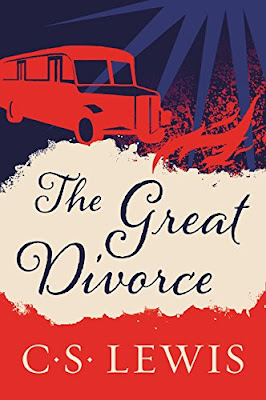Being a Created Thing
 Here is a brief excerpt from That Hideous Strength depicting
one of the main characters as she is about to experience what is the equivalent
of a “conversions experience”. I think it is quite good.
Here is a brief excerpt from That Hideous Strength depicting
one of the main characters as she is about to experience what is the equivalent
of a “conversions experience”. I think it is quite good.
“Jane had gone into the garden to think. She accepted what
the Director had said, yet it seemed to her nonsensical. His comparison between
Mark’s love and God’s (since apparently there was a God) had struck her nascent
Spirituality as indecent and irreverent. “Religion” ought to mean a realm in
which the haunting female fear of being treated as a thing, an object of barter
and desire and possession, would be set permanently at rest and what she called
her true self would soar upwards and expand in some freer and purer world. “Religion”
was a kind of exhalation or a cloud of incense, something steaming up from
specially gifted souls toward a receptive heaven. Then, quite sharply, it
occurred to her that the Director never talked about religion; nor did the
Dimbles nor Camilla. They talked about God. They had no picture in their minds
of some mist steaming upward: rather of strong, skillful hands thrust down to
make, and mend, perhaps even to destroy. Supposing one were a thing after all—a thing designed and
invented by Someone Else and valued for qualities quite different from what one
had decided to regard as one’s true self?”
Psalm 100:3 says, “Know that it is He who has made us and
not we ourselves.” The reality that we are beings created by God is so assumed
throughout Christianity that even the youngest child in Sunday School would be expected
to affirm the doctrine. And yet, do we really contemplate the implications of
being a “created thing” as Lewis so beautifully describes above?
We live in a world where we are much like Jane. We like to
make a name for ourselves. Differentiate ourselves with an out of the box
uniqueness where no one else will be able to say otherwise. Throughout That
Hideous Strength Jane has a crippling desire to be taken seriously and to be
seen as important. She wants to separate herself from the traditional mores and
prejudices of what being a female meant. Which begs the question: Suppose “one
were a created thing after all?” Would I be able to make myself into what I
want any longer? Would I be able to rise like mist in an untethered,
self-defined identity before the Almighty? Many try.
But the fundamental truth of being a “created thing” shatters
these hopes. We are not our own. We never were. We do not make the rules, nor
do we make ourselves. It is He that has made us, indeed it is He that makes us
with “strong, skillful hands”. Our Maker’s standard is the only standard by
which we must conform; and we should not find it surprising when we observe true
joy and identity experienced as the created exist in the precise lines they
were created for.
Oh how burdensome and tiring it seems to always be
stretching out and reaching beyond what you have been created to be! The world
celebrates this, the pure autonomy, the coming out of the closet, the alternative
lifestyles. Social media to some extent caters to our very human desires to set
ourselves apart and receive the due recognition. But we are feeling the weight
of such freedom, and it is ever looking more and more like a curse.
As Christians we have to delight in the created order of
God; We have to learn to rejoice in living within the boundaries we have been
given. That Hideous Strength is a relevant book to our day because it takes a
careful look into the two opposing postures of humanity: 1) rebellion against
the Creator or 2) submission to the Creator. The gap could not be wider between
the two: one holds the keys to life; the other, death.



Comments
Post a Comment